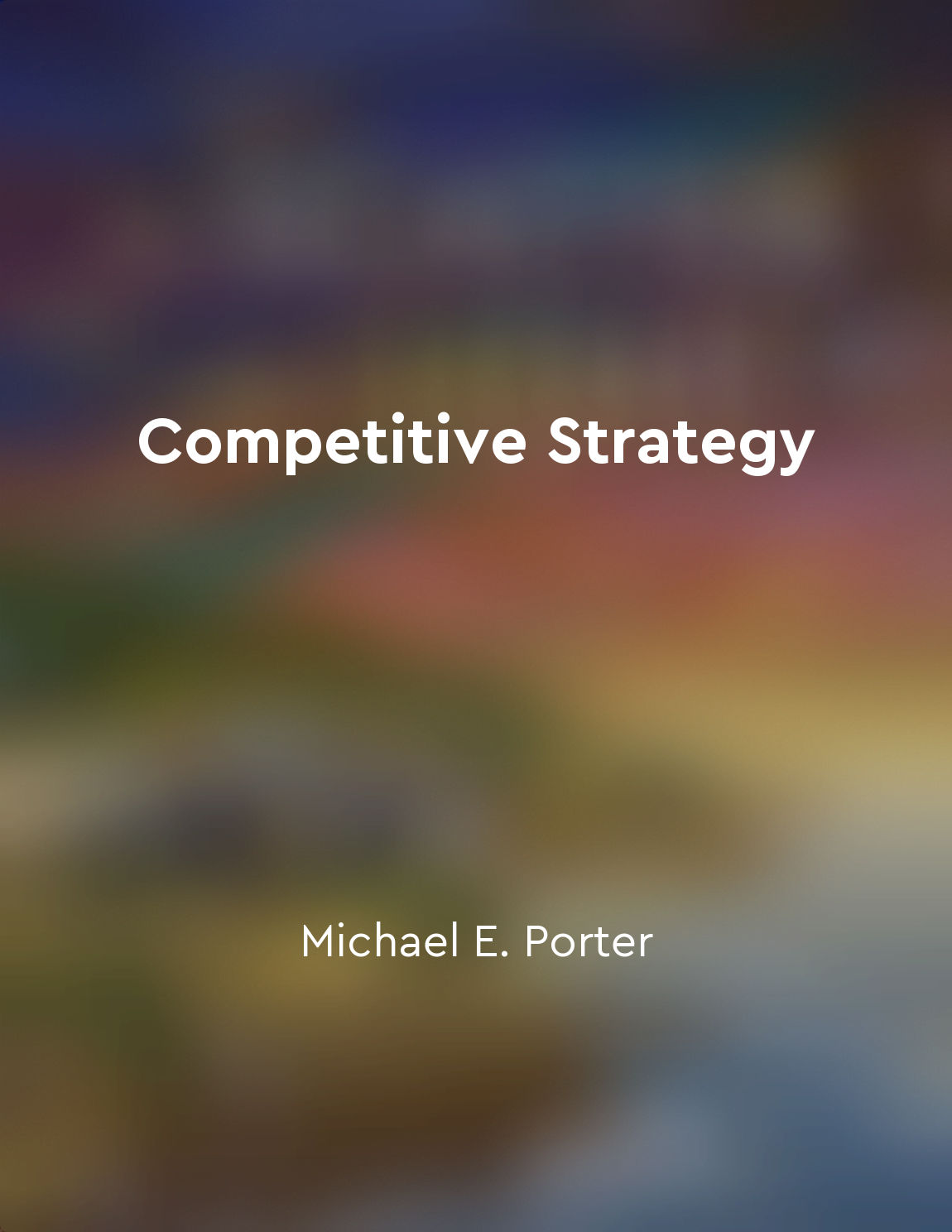Operational effectiveness is not the same as strategy from "summary" of Competitive Strategy by Michael E. Porter
Many managers often confuse operational effectiveness with strategy. They believe that by improving operational processes and efficiency, they are developing a competitive strategy. However, this is a fundamental mistake that can lead to a company's downfall. Operational effectiveness means performing similar activities better than rivals. It includes practices such as quality management, benchmarking, outsourcing, and process reengineering. These are essential for a company to be competitive in the short term. However, they are not enough to sustain a competitive advantage in the long run. On the other hand, strategy is about being different. It involves making choices about how to position the company in the market and how to create unique value for customers. Strategy is not just about doing things right, but about doing the right things. It requires trade-offs and making difficult decisions about where to focus resources and capabilities. Companies that rely solely on operational effectiveness without a clear strategy end up being stuck in the middle. They neither have a cost advantage nor a differentiation advantage. This leaves them vulnerable to competitors who have a clear strategic position in the market. To develop a successful strategy, managers must understand the competitive forces in their industry and the unique capabilities of their company. They must make choices about where to compete and how to win. This requires a deep understanding of the market and a willingness to make bold decisions that others may not.- Operational effectiveness is important for a company to be competitive, but it is not a strategy in itself. Strategy involves making choices about how to create value for customers in a unique way. By understanding the difference between the two, managers can avoid falling into the trap of competing solely on efficiency and instead focus on building a sustainable competitive advantage.
Similar Posts
Invest in developing a strong innovation ecosystem
To truly foster innovation within an organization, it is essential to create an environment that supports and nurtures new idea...

Invest in building a strong online presence
To establish a robust online presence, businesses must allocate resources towards building and maintaining a solid digital foot...
Communication is vital within organizations
Communication serves as the lifeblood of organizations, facilitating the flow of information, ideas, and feedback among individ...
Strategic thinking involves strategic foresight
Strategic thinking is not just about reacting to current situations or solving immediate problems. It involves looking ahead an...
Bad strategy ignores the challenges and chooses superficial solutions
When a strategy is bad, it means that it fails to address the key challenges facing the organization. Instead of delving deep i...
Bad strategy is built on wishful thinking and denial
Bad strategy arises from wishful thinking and denial. When leaders and organizations engage in wishful thinking, they fail to c...
Bad strategy is vague and lacks specificity
A bad strategy is like a fog that obscures the path ahead. It lacks clarity and specificity, making it difficult for anyone to ...


